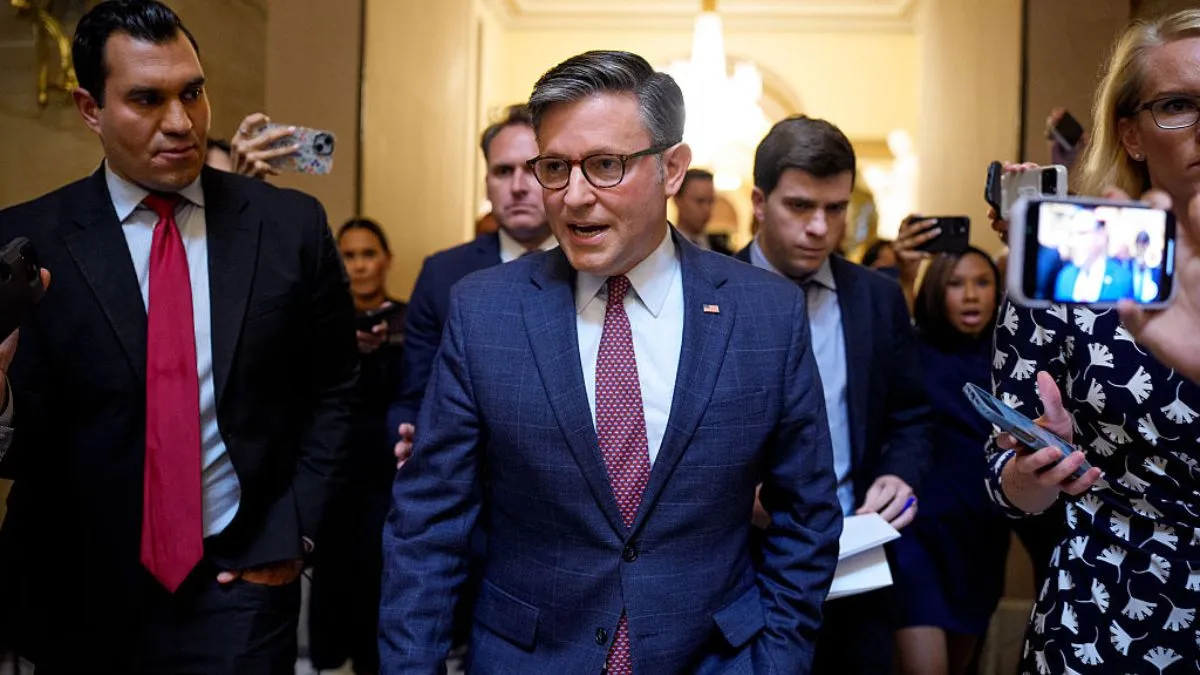House Speaker Mike Johnson announced on Monday that he will not allow any votes on legislation related to the Jeffrey Epstein case during the House’s final week in session before its extended summer recess, a move that has sparked frustration among members of his party. Despite growing calls for transparency, particularly from conservative lawmakers and vocal supporters of former President Donald Trump, Johnson insisted the current course of action should be handled by the executive branch.
“I believe we need to give the administration the space to do what it is already doing,” Johnson told CNN. “If further congressional action becomes necessary or appropriate, then we’ll consider it, but I don’t think we’re at that point just yet.” His stance has triggered criticism from some Republicans who see this delay as a failure to act on an issue that remains a focal point for many constituents.
As frustration builds, a bipartisan coalition of lawmakers is working to bypass Johnson’s decision through a rarely used procedural move known as a discharge petition. Representative Thomas Massie, a Kentucky Republican, is leading this effort, with ten GOP members, including Marjorie Taylor Greene and Lauren Boebert, already backing the initiative. If all House Democrats sign the petition as expected, it would be enough to force a floor vote.
The measure being proposed calls on the Trump administration to declassify and release all materials related to Jeffrey Epstein, including documents, communications, investigative records, and, crucially, a list of government officials who may be named in those records. This push is being driven in part by high public demand. Representative Greene told CNN that her office has received an overwhelming volume of calls from constituents asking for more information about Epstein, saying, “People want the truth. They don’t want another cover-up when it comes to the most notorious convicted pedophile in recent memory.”
Under House rules, even with a discharge petition in motion, the earliest possible vote could not take place until after the Labour Day recess. Procedural requirements stipulate that lawmakers must wait seven legislative days before formally collecting the necessary signatures.
This standoff over transparency comes just after the House delayed a separate $9 billion spending cut vote last week, largely due to heated debate over how to address the Epstein case. Ultimately, lawmakers passed a non-binding resolution urging further file releases, but Speaker Johnson has remained silent on whether that resolution will be acted upon in any meaningful way.
Former President Trump, who has been connected to Epstein through past social and professional ties, commented on the situation via his Truth Social account. He suggested that no amount of disclosure would ever satisfy what he called “radical left lunatics” and “troublemakers,” even if a court ordered full transparency.
Meanwhile, the Department of Justice has added to the controversy by confirming that there is no so-called “Epstein client list,” contradicting previous statements by former Attorney General Pam Bondi. The DOJ also reiterated its conclusion that Epstein died by suicide while in jail, a determination that continues to face public scepticism and fuel conspiracy theories.
As Congress heads into its five-week summer break, the Epstein case remains a source of political tension, both within the GOP and across the broader political spectrum. What happens after Labour Day could test Speaker Johnson’s control over his party, and the willingness of lawmakers to press forward in the face of internal resistance.


